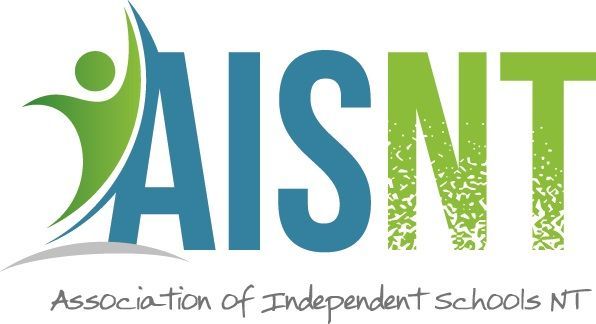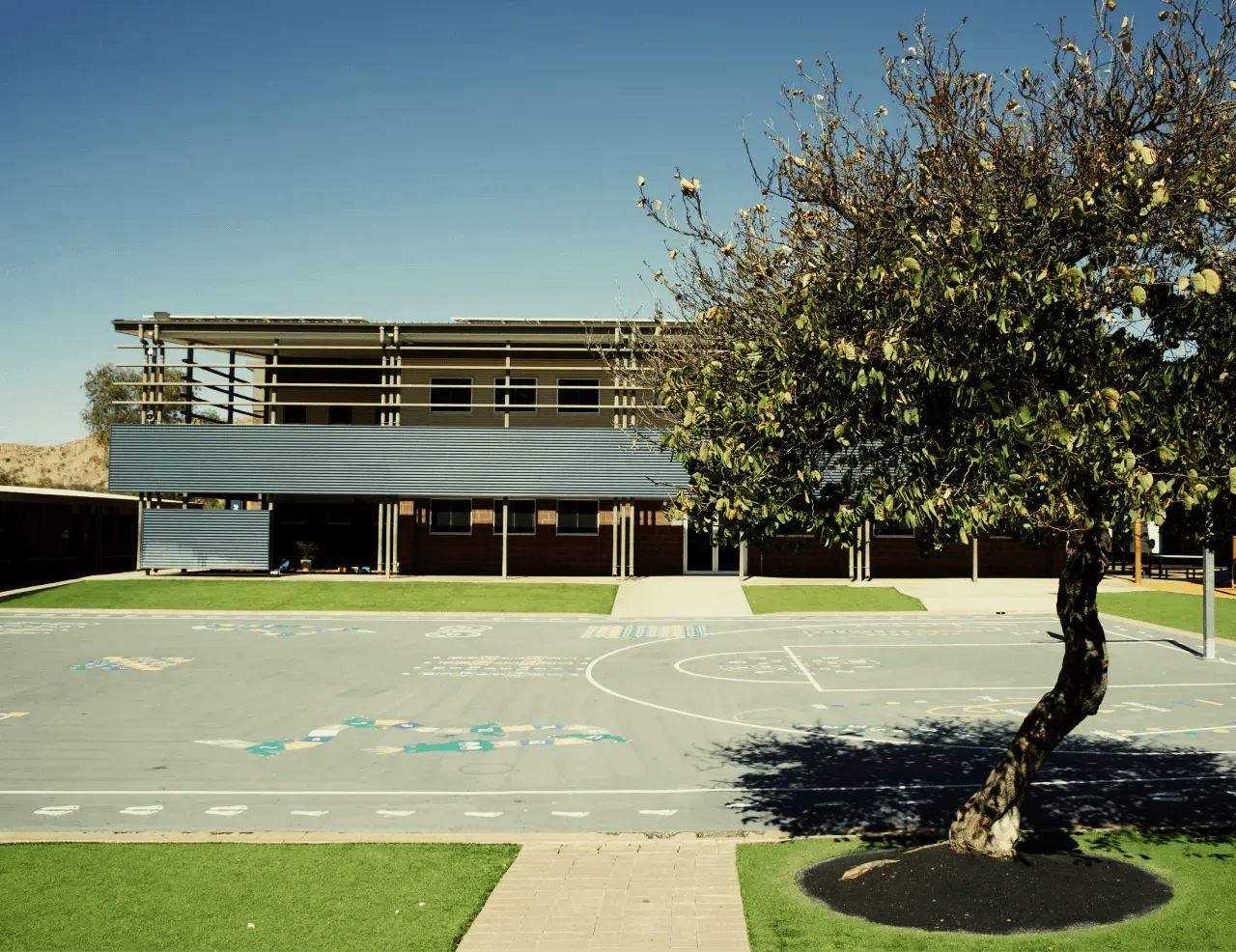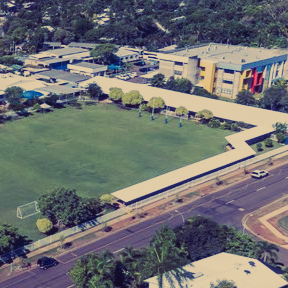History of AISNT// Mäpuru Yirralka College
Yirralka is a small community in East Arnhem Land, Northern Territory, 18 kilometers southeast of the large mining town of Nhulunbuy on the Gove Peninsula in Arnhem Land. Yirralka’s population is estimated to be 657. Mäpuru which is within this area has a population of about 150 adults 40 school age children. Yirralka refers to the sacred land of the Creators. The traditional owners are the Yolŋu people. The languages are Yolngu Matha and Djambarrpuyngu. It has a tiny store run by a community co-op. The community is 500km east of Darwin.
Mäpuru school is part of Yirralka Education. Yirralka Education is an entity that enables Mäpuru families, Elders and Custodians to govern their own educational programs including schooling for their children. “This model embeds bi-cultural education into schooling that takes place on Yolŋu land.” The school listens closely to all community members and the Wobulkarra, Guyamirrilil, Ritharrnyu, Ganalbingu, Munyuku, Liyalanmirr, Gupapuyngu land custodians and others who form Yirralka Education. This governance model is key to understanding Mäpuru's educational vision, which is to enable their children to live self-determined lives of dignity on ancestral estates. Their aim is not to use a Western Education model in which they have little faith in its capacity to deliver the education they want for their children. They believe that when Elders’ authority is respected and Yolngu pedagogies are applied, students become deeply rooted in their identity. This strengthens cultural traditions while building the confidence to engage with the broader Western world.
The local people feel strongly that Western Schooling in Australian is based on a Western Model that serves Western Purposes. It is a model that assumes the primacy of the Western viewpoint and is therefore accepted as the only way of seeing, feeling and thinking about the World. To the local people the Western Model is dismissive of Yolŋu Knowledge Systems, Asocial Theories, Traditional Skills, Assets and ways of Seeing, Doing, and Valuing the World. The result is that children are guided towards a Western Model of Thinking that can leave them isolated and lost.
To the local people “school at Mäpuru is a social enterprise where education, community development, social justice, reconciliation and dignity restoration is enabled across the entire town.” Mäpuru Elders control the process of running the school, the content and pedagogy delivered to their children. It is a priority to involve parents.
There is strong recognition that Yolŋu students must engage with Western Society on their own terms. If they choose not to engage with Western Society, that is acceptable.
The school program therefore follows the following journey:
active inclusion and nurturing of Yolŋu languages, philosophies supported by trips onto Country, with meaning presented by local people with correct knowledge and a clear understanding of how to present it.
Linda Miller and John Greatorex both taught at Shepherdson College on Galiwin’ku, Elcho Island, where they developed deep connections with Yolŋu communities. Linda later became the Principal of the school at Mäpuru. John first visited Mäpuru during the mission days and maintained a long-standing relationship with the community. His early experiences helped shape his understanding of Yolŋu ways of knowing and being, which would later inform his work in bilingual education and community advocacy.
The following story draws from an article written by Linda Miller, chronicling the journey of Mäpuru School—a journey marked by resilience, cultural renewal, and the unwavering determination of its people.
In the early 1970s Mäpuru parents wanted their own school. parents saved their money and in 1982 they were able to build a schoolhouse and established a Homeland Learning Centre. For six months they operated a school program, without pay and with minimal assistance.
In 1984 Jackie (Nguluwidi) began working as the assistant teacher at the Centre. She had no formal teacher training but was highly committed to the children. Linda and John knew Jackie, Roslyn (Malngumba) and Margaret (Bambalarra) and their families and this friendship now goes back 30 years.
In 1998 Jackie’s uncles Johnny (Galngdhuna) and Kevin (Gätji) asked NT ED for a permanent English-speaking teacher to be resident at Mäpuru. The request went nowhere until 2003 when Kevin sent a letter to Education Minister, Hon. Syd Stirling.
Several months passed and no reply. Then action! Late 2003 the Minister visited Mäpuru and promised a qualified teacher would be positioned there permanently. But sadly, no action took place.
2006 Kevin visited the Minister in Darwin. There was a new promise but nothing happened. So, in mid-2007 Kevin spoke to the ABC’s Lateline.
Jackie’s father said: “We want to be equal in education. We want to be equal in life. Just give us a chance, give us a go.”
The new minister didn’t think the children were getting a raw deal. He investigated and said the community would not get a full-time teacher.
Now, Mäpuru was a Christian Community and therefore approached the NT Christian Schools Association for help.
They agreed to help, and the Minister Marion Scrymgour was asked to help them become an Independent Christian School. Their desire to be an Independent School was so they could select teachers who were sympathetic to their aspirations.
In 2010 Mäpuru Christian School was registered under the umbrella of the NT Christian Schools Association, with the intention that eventually the school would be fully Independent. Linda Miller became the new teaching Principal. She remains in that position today except for two and a half years 2022 - Term1 2024 when Dr Debra Bateman was Principal before becoming CEO of the Teacher Registration Board. Linda continues in the position of Principal until a suitable replacement can be found.
Dr Bateman recalls the following. “We are proud of the Kids we are developing”. She further notes “they are young people who honour those who have gone before them, and they are the best example of Aboriginal and Torres Strait Islander culture. They are deeply connected to their land, people and traditions - they are not lost and disconnected. They are grounded, sensitive, respectful and decent young men and women."
Many Mäpuru Yirralka College students have gone on to support the defence forces in the NT, health providers and ranger programs. They have also been sought after in their community to participate in and lead important ceremonial and cultural practices.
At a local level the College’s innovative approach to in-country and bilingual learning, works to support efforts in preserving and strengthening the local Aboriginal culture and language. Everything we do is done side-by-side, the entire curriculum is delivered bilingually, our non-Indigenous teachers teach in English to build competency for life outside their community”.
The Aboriginal assistant teachers, under the cultural authority of the elders, guide and assess learning experiences in Yolŋu language, culture, concepts and place.”
Pioneering a school requires so much dedication and emotional investment. You are not apart from the school, leaving when the bell or whatever goes but you live it all the time. I used to leave the TV because I was driven to pace new facilities in the moonlight.



